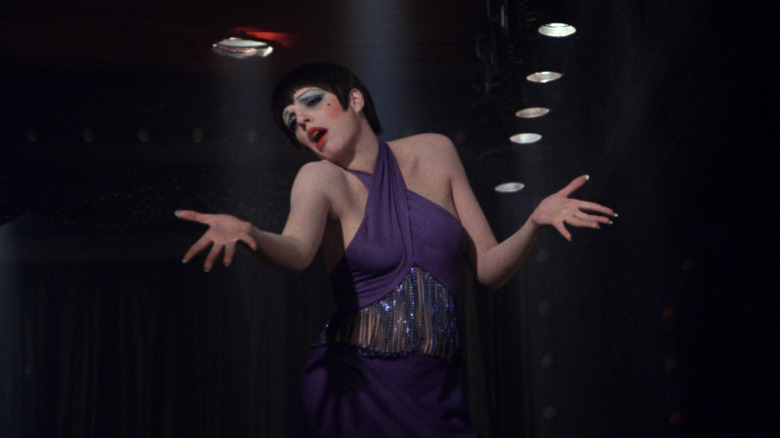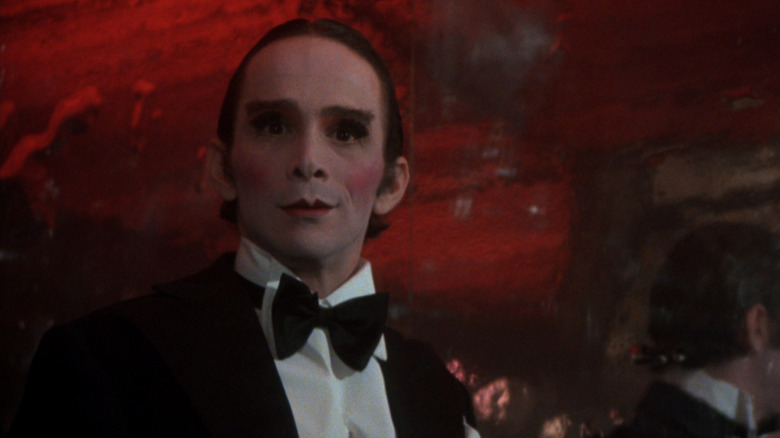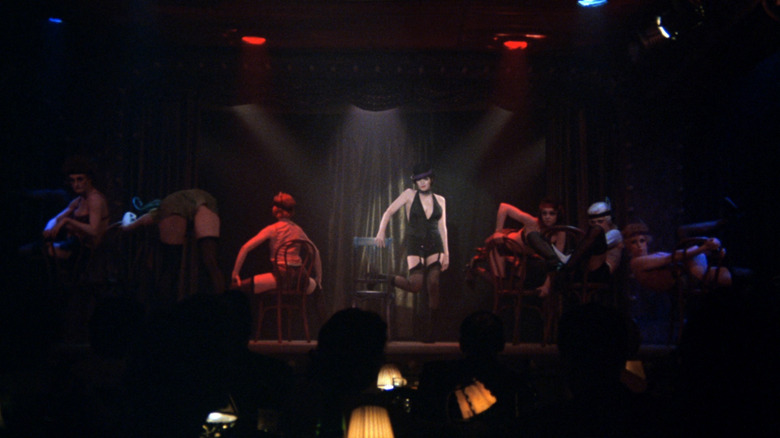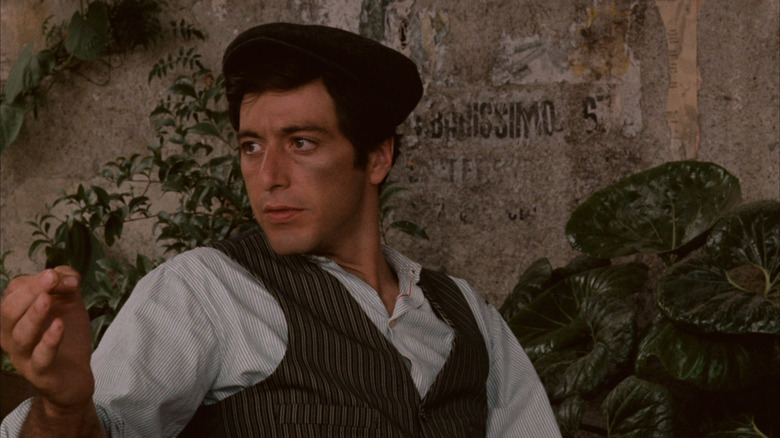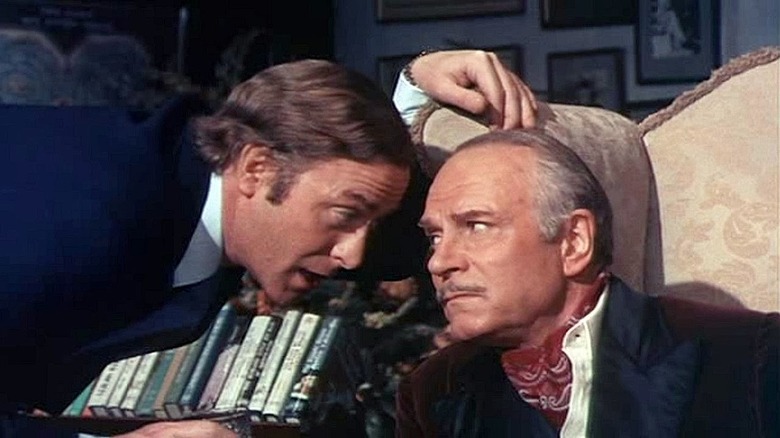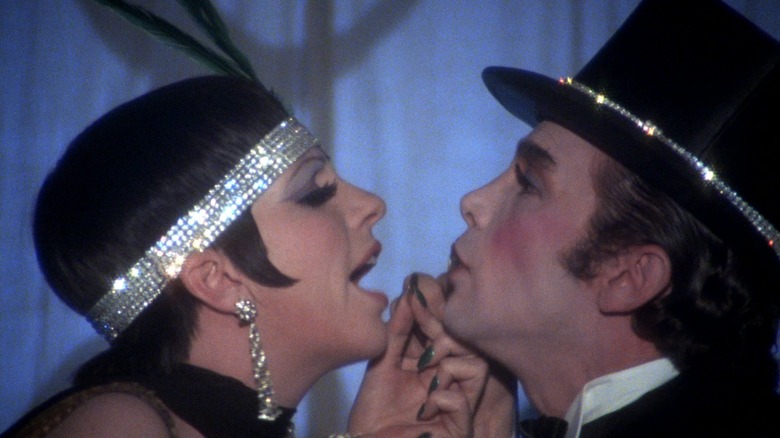Did Bob Fosse Deserve To Beat Francis Ford Coppola For Best Director At The 1973 Oscars? An Investigation
(Welcome to Did They Get It Right?, a series where we take a look at an Oscars category from yesteryear and examine whether the Academy's winner stands the test of time.)
If you were to ask the average moviegoer what the best movie of all time is, chances are pretty good that Francis Ford Coppola's "The Godfather" would be one of the most responded answers. Since it was released in cinemas back in March 1972, Coppola's examination of corruption, violence, and capitalism through the lens of organized crime has entranced viewers and inspired countless numbers of future filmmakers. A line from this film gets quoted every single day, from "Leave the gun, take the cannoli" to, of course, "I'm gonna make him an offer he can't refuse." When we think of the canonical greats of American cinema, "The Godfather" stands there right alongside "Citizen Kane" as the cream of the crop.
The film instantly became a cultural phenomenon and ended up the highest-grossing release of the year, and ultimately, it took home the Best Picture prize at the Academy Awards, capping off its year of wild success. Even though it won Best Picture, "The Godfather" was not the big winner of the night, taking home just three awards. While its epic scale and period setting make it ripe to clean up prizes, the big winner that evening was actually the movie musical "Cabaret," which took home eight. That haul notably included Bob Fosse beating out Coppola for Best Director. For someone to direct a cultural phenomenon, it would make sense to crown that individual, and I know there are plenty of people out there who think the Academy whiffed this. I couldn't disagree more and want to dispel any notion that Fosse somehow "stole" Coppola's Oscar.
A little context
Since the advent of synchronized sound, the movie musical had been a cornerstone of the Hollywood filmmaking machine. From "The Jazz Singer" to "The Sound of Music," the form had 40 years of cinematic ubiquity. During the transition to the New Hollywood in the late 1960s brought about by films such as "Bonnie and Clyde," "The Graduate," and "Easy Rider," the ultra-earnest, glamorous movie musical was no longer in fashion. People wanted realism, and an increasingly political generation of young people was looking for art that dealt with the complicated issues that all boiled over in the 1960s. Sequins, tap dancing, and toe-tapping songs weren't dealing with these topics. When something has proved to be a tried and true success for that long, it is often difficult for it to evolve with the times.
Meanwhile, Broadway was evolving. Shows were dealing with darker and more sophisticated subject matters. You had Stephen Sondheim emerging as a composer, upending the hummable melodies and poetic lyrics of his predecessors and mentors into melodically complex and linguistically intricate puzzles. You had "Hair" bringing rock and roll music to the theatre, and it, along with "Oh! Calcutta!," putting nudity on stage. Musical theatre was progressing just as the New Hollywood was, but movie musicals were still about a decade or so behind. If Hollywood still wanted movie musicals to be viable, they needed an update in style, subject matter, and tone. Enter: Bob Fosse.
Reinvigorating an entire form
"Cabaret" was only the second film Bob Fosse ever directed. The man had made his name directing and choreographing hit Broadway musicals, but when he came over to film, his first crack at the bat, an adaptation of the musical "Sweet Charity" starring Shirley MacLaine, was an unqualified bomb that made $8 million on a $20 million budget. This was the same year as an even more infamous movie musical bomb in "Hello, Dolly!" 1969 is generally regarded as the year the movie musical died, and it looked like maybe Bob Fosse's film career was going to be one of the casualties. "Sweet Charity" is certainly a Fosse film, filled with plenty of his signature jagged choreography, but it is unmistakably Fosse making what he thinks is a Hollywood musical should be and not what he wants it to be.
With "Cabaret," Fosse not only made a film that cements his filmmaking style that we would go on to see in "Lenny" and "All That Jazz," particularly in the editing patterns, but more importantly, he successfully brought the movie musical to the present, one that the acolytes of the New Hollywood would love. This was a film that dealt head-on with the terror and violence of the rise of fascism, abortion, and bisexuality, without side-stepping the harsh realities of any of it. He also structured the musical numbers to be entirely diegetic, obliterating the barrier for a more cynical audience not accepting people breaking into song. The dance numbers weren't glittering fantasies. They were dark and sexy. What Bob Fosse did with "Cabaret" took something that was once thought dead in the industry and injected it with more life than anyone could have possibly imagined.
The populist pick
Crime films had a much easier transition to New Hollywood than movie musicals did. The de facto beginning of the era was a crime film, "Bonnie and Clyde." The Hays Production Code withering away made cinema a place where sex, violence, and profanity could now flourish, and stories about people on both sides of the law made for great places to explicitly utilize these tools for storytelling. The year before "The Godfather," the Best Picture winner was William Friedkin's hard-edged crime thriller "The French Connection." This was at the cinema alongside another brutal cop film in "Dirty Harry" and the still shocking "A Clockwork Orange."
In a lot of ways, "The Godfather" had been primed for success, with this grand, violent, thoughtful crime epic being the thing the New Hollywood had been building to. These films that had operated on a grittier street level were now being elevated to a grand scale with a running time equivalent to the great Hollywood epics of the past. Audiences ate it up, for sure. Though we think about it as the somewhat austere, important film half a century later, "The Godfather" was the populist film of 1972. When that happens, it can often lead members of the Academy to look at other things to award because it already got its laurels. Plus, they gave "The Godfather" Best Picture that year as a sign of its massive impact. Perhaps something perceived as more artistically daring could get a boost, and in this case, that meant "Cabaret."
The other contenders
Though this was ultimately a two-horse race, that didn't mean 1972 wasn't filled with some truly tremendous movies that the Academy rightfully recognized. I was extremely pleased that Joseph L. Mankiewicz managed to nail a Best Director nomination for his delightful, puzzle-filled two-hander "Sleuth," despite it missing out on the Best Picture nomination. For a very long time, "Sleuth" has been damn near impossible to see in the United States because the rights are tied up in a pharmaceutical company who aren't interested in doing anything with it. I'm not kidding. I happened to catch it on TCM well over a decade ago and have subsequently imported both UK and Greek DVDs to own it. It's a real shame because now the only film adaptation of Anthony Shaffer's play that is readily available is Kenneth Branagh's from 2007, which is rather abysmal.
I believe the person running in third place was John Boorman who directed something of a cultural phenomenon himself with "Deliverance." This is a film about Southern grotesquery and violent rape, and it somehow became the fourth-highest-grossing film of the year and had a hit instrumental bluegrass single that went to number 2 on the Billboard Hot 100. The 1970s, man ... wild time. All kidding aside, "Deliverance" is still a harrowing, impeccably crafted motion picture, and you totally understand how Boorman had the caché to get something as crazy as "Zardoz" made after it.
Lastly, the 1960s and '70s were pretty good about recognizing international films in these major categories, and that manifested here with Swedish filmmaker Jan Troell getting a nomination for "The Emigrants," the three-hour first part of his duology that concluded the following year with "The New Land." The Academy loves an epic, but they do prefer them in English.
Two directors always against each other
Bob Fosse was nominated for Best Director three times. Considering he made only five films, that is an incredibly impressive hit rate. Every single time he was nominated, he competed against Francis Ford Coppola at the Oscars. In 1973, it was "Cabaret" vs. "The Godfather." In 1975, it was "Lenny" vs. "The Godfather Part II" and "The Conversation." In 1980, it was "All That Jazz" vs. "Apocalypse Now." These were two filmmakers making American classic after American classic, and they always found themselves on opposite sides of the aisle. In the end, Fosse won in '73, Coppola won in '75 for "The Godfather Part II," and they both lost in '80 to Robert Benton for "Kramer vs. Kramer."
I'm glad that neither director emerged from the decade with more Best Director trophies than the other because each one elevated the art form in ways only those crazy minds could. Just because "The Godfather" is more universally popular today than "Cabaret" doesn't mean that the latter isn't a spellbinding achievement. Had Best Director gone to Coppola, it also would have robbed Fosse of winning the directing triple crown that year — which has never been duplicated — as he also took home Best Director awards at the Tonys for "Pippin" and the Emmys for "Liza with a Z" in 1973.
The New Hollywood of the late 1960s and '70s will always be one of the most exciting movements in American cinema ever, if not the most. Bob Fosse and Francis Ford Coppola were two figures emblematic of the creative potential that this newfound freedom in Hollywood filmmaking could foster. We live in a world where they both received their well-deserved laurels, and I think that is the way it was meant to be.
